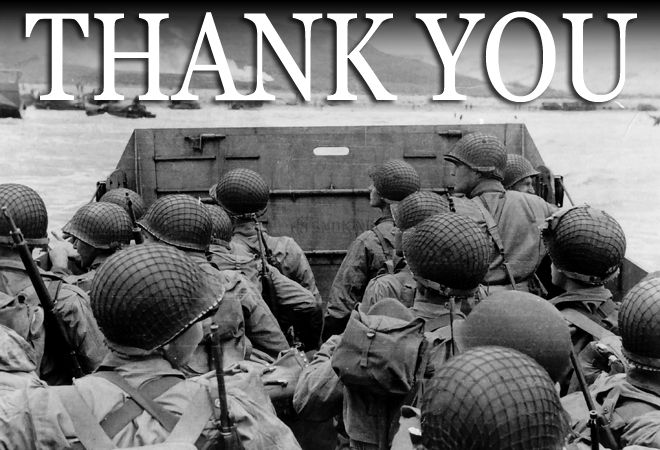|
Posted on 06/06/2014 5:59:11 PM PDT by AZamericonnie
|
Some of the commercials I found are absolutely hilarious.
Good evening, spel, and thank you for the Friday Night Edition of the Salsa Addiction Emergency Room! ((HUGS))


I’m going to have to take some extra time to go through those when I can concentrate and enjoy them! I’m sure they will make me smile, too! ;)
No, prob, Ma! ;-)
(((( HUGS ))))
A special rememberence for those who sacrificed so all could be free - D-Day June 6, 1944
A word from our sponsor.
Helen Forrest (1917-99) served as the girl singer for three of the most popular big bands of the Swing Era – Artie Shaw, Benny Goodman, and Harry James – thereby earning her a reputation as “the voice of the name bands.”
She was born Helen Fogel in Atlantic City. While she was still an infant, Helen’s father died from the flu pandemic. Helen was raised by her mother, who blamed her husband’s death on the birth of Helen, believing that God had taken her husband because she had wished so much for a baby girl. Helen and her brothers relocated to Brooklyn when Helen was in her early teens. Her mother married a house painter, who turned the family home into a low class whorehouse. At age 14, Helen was nearly raped by her stepfather. Following this incident, her mother sent her to live with her piano teacher. While learning piano, Helen's singing ability came to the fore. Anxious to find a career in singing, Helen dropped out of high school to pursue her dream.
Atlantic City was an entertainment Mecca in those days, and Helen returned to the city of her birth to sing with her brother’s band. But she soon returned to New York, where she visited song publishers and performed an audition for a 15-minute slot for a local radio show. Helen was encouraged to change her name to Forrest because Fogel sounded too Jewish. At 17, Helen landed jobs in New York radio and then in Washington as a lounge singer.
In 1938, Artie Shaw saw her in Washington and asked her to go on tour with him; Shaw was looking for new talent when vocalist Billie Holiday decided to leave the band. For a time she and Holiday were both working with Shaw. In some venues, black performers were required to remain off stage until they performed. When Helen became aware of this, she stated that, like Holiday, she would also not take the stage until she was to sing.
Helen joined Benny Goodman in 1939, with whom she recorded a number of celebrated songs. She had a few stories about Benny. “Benny would look right above your eyebrows, in the middle, right on top of the brow. He was a very strange man. The band I joined was sensational, but few special arrangements were written for me. I sang choruses, and made myself fit to the music. Benny used to drive me crazy by ‘noodling’ behind me on clarinet while I sang.” Goodman was also a perfectionist and a very difficult man to work with. In 1941, Forrest quit the band “to avoid having a nervous breakdown”.
She approached Harry James, offering to work for him under one condition: that she be permitted to sing more than one chorus. Although Harry was looking for a more jazz-oriented singer, he allowed Forrest to audition. The band voted her in, and she was hired. Several decades later, Forrest explained: “Harry James was wonderful. When I joined him, I said, ‘There’s only one condition: I don’t care how much you pay me, I don’t care about arrangements. The one thing I want is to start a chorus and finish it. I want to do verses, so don’t put me up for a chorus in the middle of an instrumental.’ He said, ‘You got it,’ and that was it. I’ll always remain grateful to Artie and Benny. But they had been featuring me more like they did a member of the band, almost like another instrumental soloist. Harry, though, gave me just the right sort of arrangement and setting that fit a singer. It wasn’t just a matter of my getting up, singing a chorus, and sitting down again.” Harry constructed the arrangements around his horn and Helen’s voice, establishing warmer moods by slowing down the tempo so that two, instead of the usual three or more choruses, would fill a record. Many an arrangement would build to a closing climax during Helen’s vocal, so that she would emerge as its star.
She left Harry James in 1943, went solo and had her greatest hit. (I should note that I first heard this song intoned by Mel Blanc as Daffy Duck in a Warner Brothers cartoon.)



Great plane...great tune! :)
Welcome to the party, LV!
A word from our sponsor.
Lawrence Welk (1903-92) is best remembered by the Baby Boomers as host of a Saturday night TV show on ABC. But he had a long history before that.
Welk was born in the German-speaking community of Strasburg, ND. The family lived on a homestead that today is a tourist attraction. They spent the cold winter of their first year under an upturned wagon covered in sod. Welk decided on a career in music and persuaded his father to buy a mail-order accordion for $400 (equivalent to $4,700 today). He promised his father that he would work on the farm until he was 21 in repayment for the accordion. Any money he made elsewhere during that time, doing farmwork or performing, would go to his family.
He began learning English as soon as he started school. The part of North Dakota where he lived had been settled largely by Germans from Russia; even his teachers spoke English as a second language. Welk thus acquired his trademark accent. He took speech lessons in the 1950’s and could speak almost accent-free, but he realized his public expected to hear him say, “A-vun, an-a-two an-a-tree” and “Wunnerful, a-Wunnerful!”
On his 21st birthday, Welk left the farm to pursue a career in music. During the 1920’s, he performed with a number of bands before starting his own orchestra. During the 1930’s, Welk led a traveling band that specialized in dance tunes separate from the whole Swing Era trend. The band traveled around the country by car. They were too poor to rent rooms, so they usually slept and changed clothes in their cars. The term “Champagne Music” was derived from an engagement at the William Penn Hotel in Pittsburgh, when a dancer referred to his band’s sound as “light and bubbly as champagne.” The hotel also lays claim to the original “bubble machine”, a prop left over from a 1920’s movie premiere.
Welk’s band performed across the country but particularly in Chicago and Milwaukee. In the early 1940’s, the band began a 10-year stint at the Trianon Ballroom in Chicago, regularly drawing crowds of nearly 7,000.
Happy Saturday to you, Sandy! :)


A word from our sponsor.
This is for real jazz afficianados. No wussies permitted.




~ Tunes For Our Troops!! ~

FR CANTEEN MISSION STATEMENT
Showing support and boosting the morale of
our military and our allies’ military
and the family members of the above.
Honoring those who have served before.
CLICK HERE TO FIND LATEST THREADS

![]()

CLICK FOR Current local times around the world
CLICK FOR local times in Seoul, Baghdad, Kabul,
New York, Chicago, Denver, Los Angeles, Anchorage
The FR Canteen is Free Republic's longest running daily thread
specifically designed to provide entertainment and moral support for the military.
The doors have been open since Oct 7 2001,
the day of the start of the war in Afghanistan.
We are indebted to you for your sacrifices for our Freedom.



A word from our sponsor.
From Savannah’s own Johnny Mercer.


~ Sent To Me By A Friend ~


Disclaimer: Opinions posted on Free Republic are those of the individual posters and do not necessarily represent the opinion of Free Republic or its management. All materials posted herein are protected by copyright law and the exemption for fair use of copyrighted works.